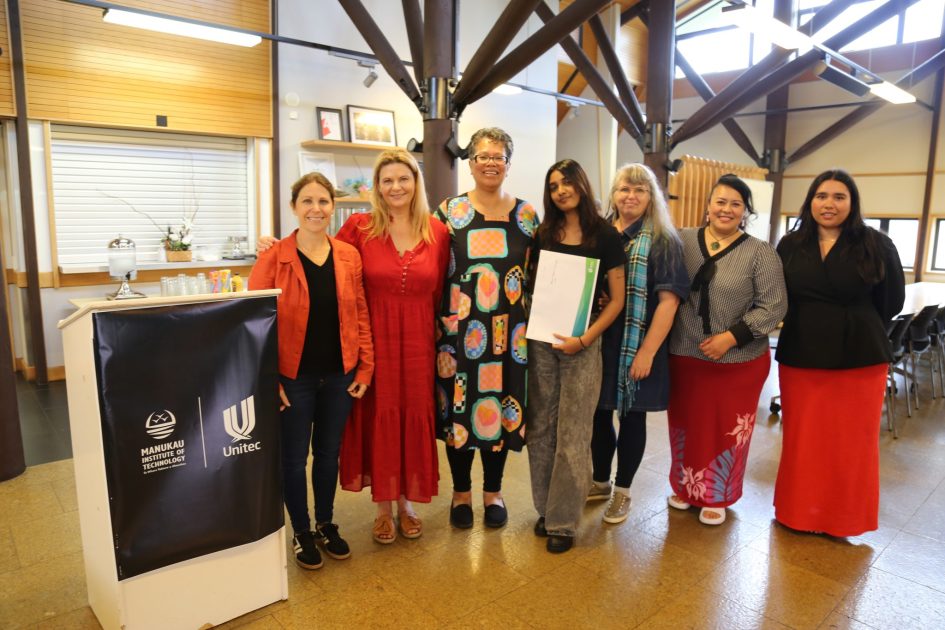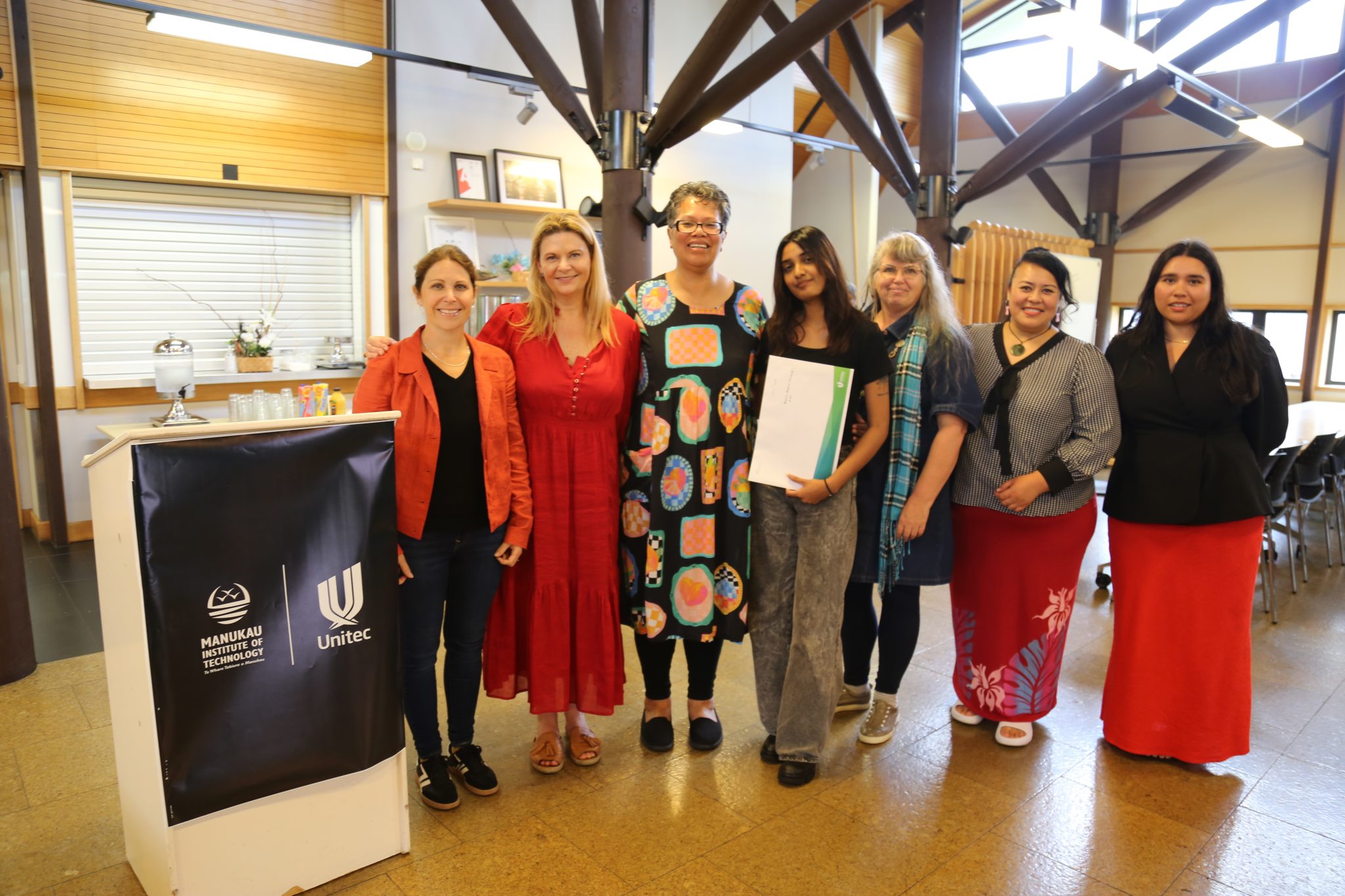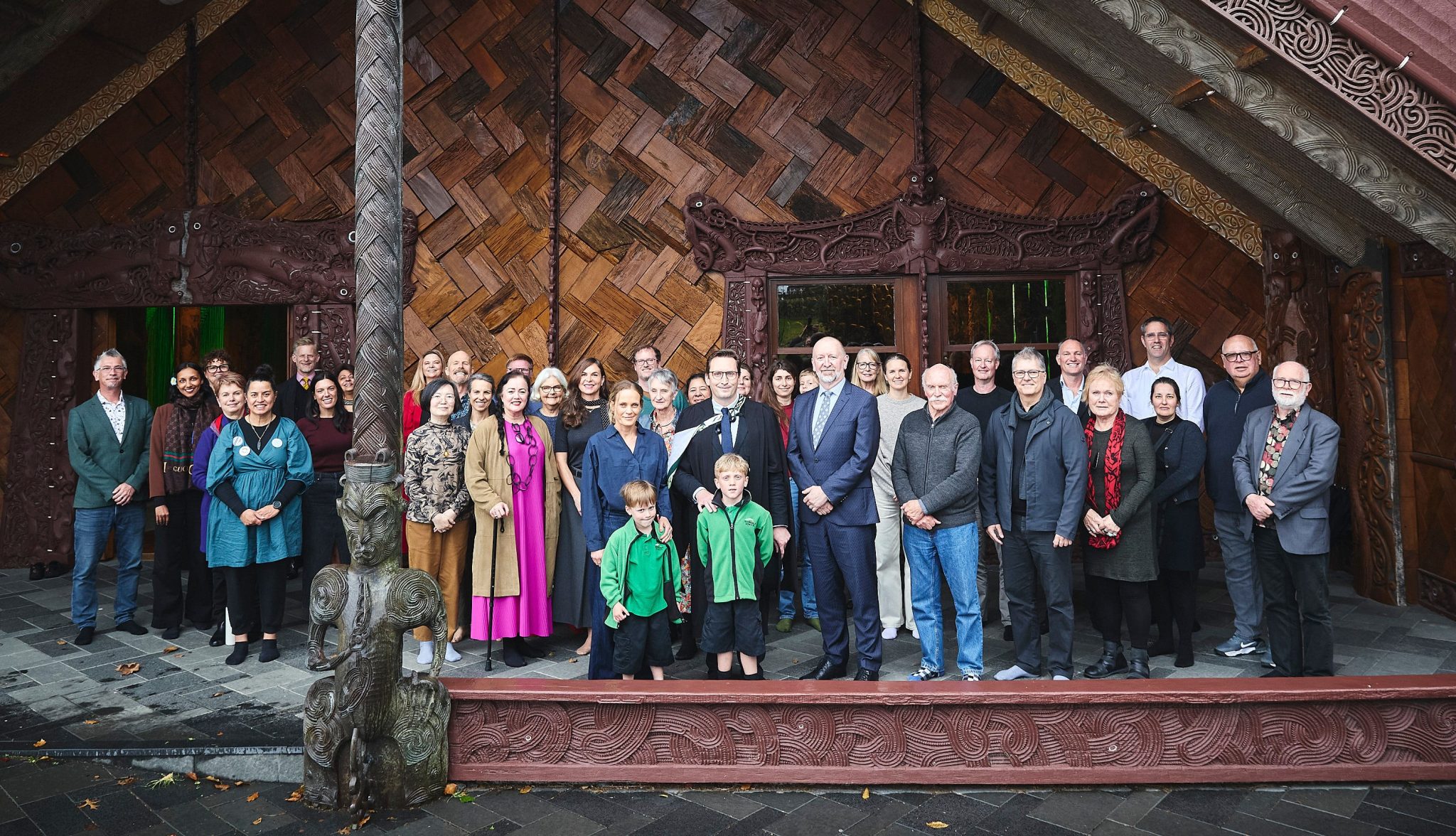On board Te Waka Houra: Unitec/MIT research communities unite to deliver successful competition
24/10/2025

The coming together of Unitec and MIT’s research community for the 2025 Three Minutes to Impact (3MT) Competition has been a hailed an “uplifting and inspirational” success.
“It felt like we are already on board the Waka Hourua — connecting through research,” says Dr Rosanne Ellis, Director, Research and Enterprise Tamaki, Tuapapa Rangahau, following Wednesday’s event at Te Noho Kotahitanga Marae, which attracted close to a hundred kaimahi and ākonga from both institutions.
“I was incredibly proud of our kaimahi and ākonga who participated. The competition truly highlighted the strength of MIT and Unitec’s vocational education research ecosystem.”

Master of Applied Technologies (Computing) ākonga, Maria Gomes was the winner of student category at the 2025 Unitec/MIT – Three Minutes to Impact Competition.
Thirteen master’s and doctoral ākonga were entered in this category at this year’s Competition held at Te Noho Kotahitanga Marae on Wednesday.
Maria’s presentation titled ‘Heart Disease Detection using Graph Neural Networks’ was well received by the judging panel: Gregor Steinhorn (Head Judge), Associate Professor Lefaoalii Dion Enari, Associate Professor Laura Harvey, Associate Professor Deb Heke, and Robert Shaw (MIT).
“I feel very overwhelmed. I was not expecting to win at all. But it’s a really good opportunity so I’m so grateful for it,” says the 25-year-old data science major who hails from Bangladesh.
Maria’s research is using AI for automatic diagnosis for heart diseases, which could address the drawn-out process of patients redoing their ECG (electrocardiogram) exams.

“It’s also difficult to find some hidden patterns that even humans can’t find, which AI can do. Ultimately, I just want people to be able to do ECG tests once and then go home rather than having to do an over and over again,” she adds.
Maria attributes her win to being prepared and simplifying her research, which was important with the three-minute time cap. Her research also resonated with the audience on a personal level as heart disease is a leading cause of death in Aotearoa.
“A really good way for making an effective presentation is to use analogies, because it helps adapt your research so that anyone can understand it. So, finding a good example that can relate with everybody in the room, because you’ve only got a short time and you have to get across your points very fast,” she explains.
Her principal supervisor, Associate Professor Iman Ardekani says: “Maria combines intellectual depth with the ability to communicate with clarity and warmth, a quality that makes her research both engaging and impactful.”
Master Creative Practice ākonga, Tracey Deane (Liminal Illumination) and Master of Landscape Architecture ākonga, Hunter Henson (Whenua ki te whenua) were runners up in the student category.

Eleven presenters were entered in the kaimahi category which was won by MIT’s Maureen Fepuleai from the School of Health and Counselling for her presentation titled “Navigating Ala: Empowering Tama’ita’i Sāmoa through Shared Stories”.
Judge, Assoc. Prof. Enari described her presentation as “powerful”.
“She really took us on a journey with her story and made us, the audience feel the pain of the elders, and she told it in a very beautiful way,” he explains.
Unitec’s Associate Professor, Kristie Cameron (School of Environmental and Animal Sciences) – ‘Community of researchers of applied and future-focused training’ and Genevieve Sang-Yum (School of Social Practice) – ‘Intersections of faith and abuse: A study of Samoan social work practitioners’ insights into family violence’ were runners up.

“It was fantastic to see the diversity of applied research and research-in-practice being showcased — from Kaupapa Māori, Pacific, health and wellbeing, to business, architecture, creative industries, and deep tech like AI and computer science,” Dr Ellis remarked.
“We were especially appreciative of our MIT kaimahi, who juggled teaching obligations and navigated terrible traffic to attend — your commitment did not go unnoticed.”
All winners received flowers and a $1000 eGift voucher with the runners up receiving flowers and a $500 eGift voucher.
Dr Ellis acknowledged the support from the judging panel, the Marae/MAIA Team and Kaihaūtu, Harawira Pearless, and the Team at Tūāpapa





Leave a Reply